Category: Economic, social and cultural rights
-

No to the introduction of “malicious undermining of State authority” in the Belgian Penal Code
ASF joins more than 500 signatories from associations, universities, the judiciary and civil society in warning of the danger of the introduction in the new Belgian criminal code of the offence of malicious attack on the authority of the State.
-
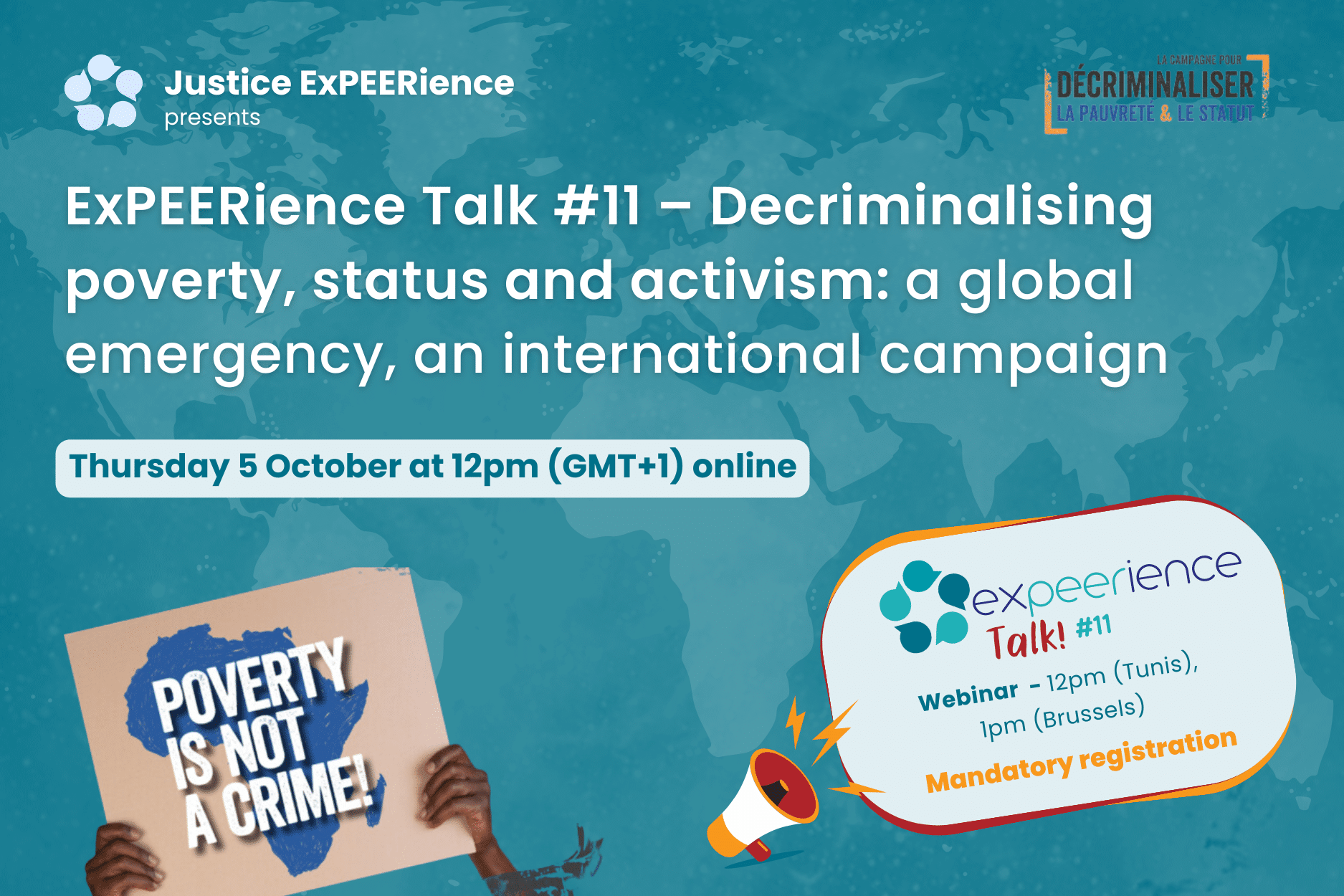
ExPEERience Talk #11 – Decriminalising poverty, status and activism: a global emergency, an international campaign
This 11th ExPEERience Talk will be devoted to the Campaign for the Decriminalisation of Poverty, Status and Activism. Several of its members will present its history and how it operates. They will discuss the challenges encountered and the opportunities presented by the networking of a multiplicity of actors to tackle a global and systemic issue…
-
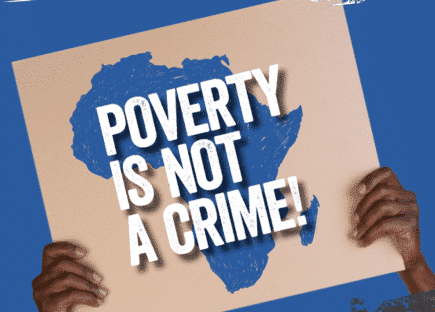
The campaign to decriminalise poverty, activism and status
The Campaign for the Decriminalisation of Poverty, Status and Activism, launched in Africa, South Asia, North America and the Caribbean, is led by a coalition of civil society organisations calling for the revision and repeal of laws that target people because of their status (social, political or economic) or their activism. In many countries, criminal…
-
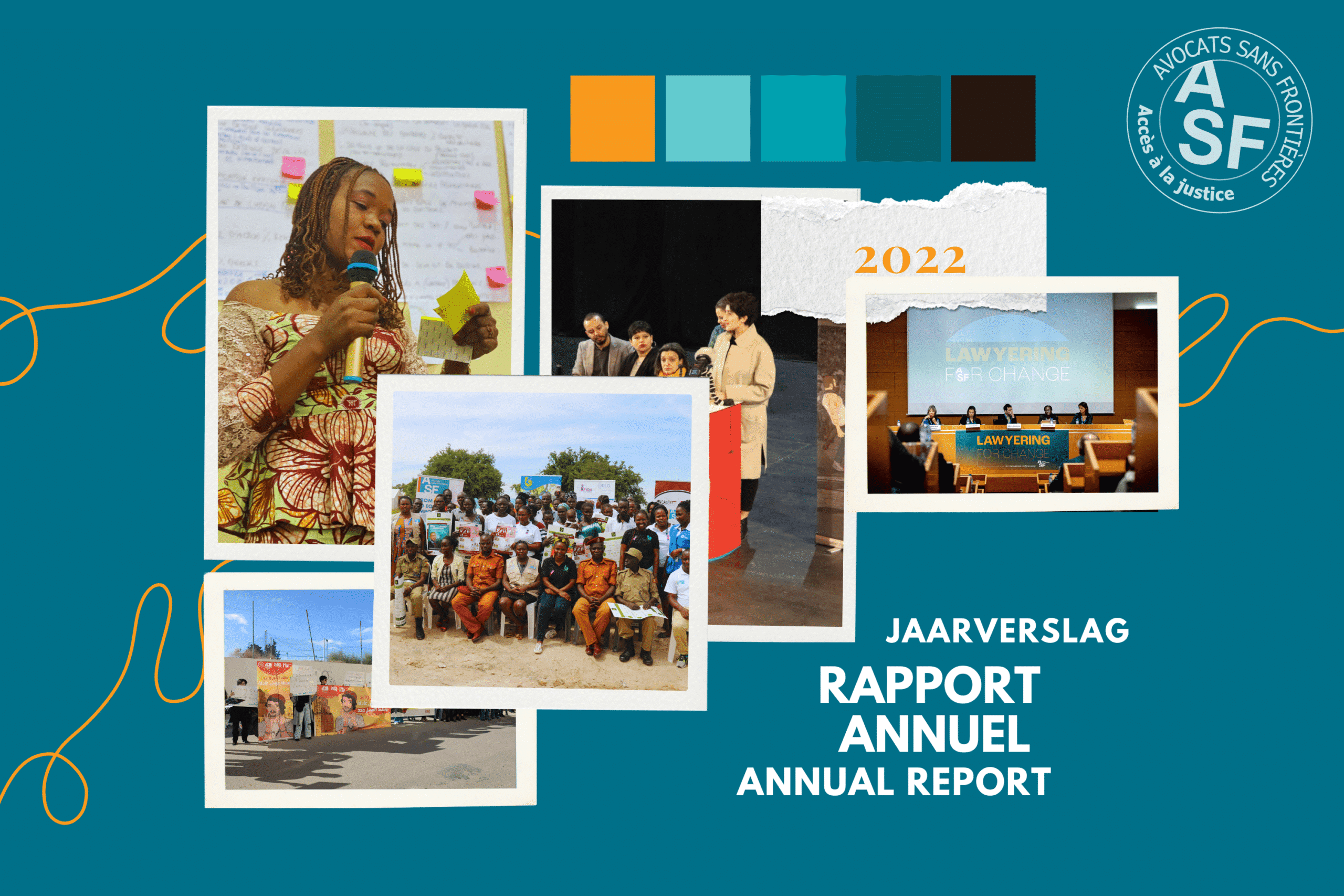
ASF’s annual report is available!
Avocats Sans Frontières is delighted to present its latest annual report. Our teams offer a seriers of articles about our field work on detention, transistional justice, business & human rights, communities of practice, our advocacy work, etc.
-
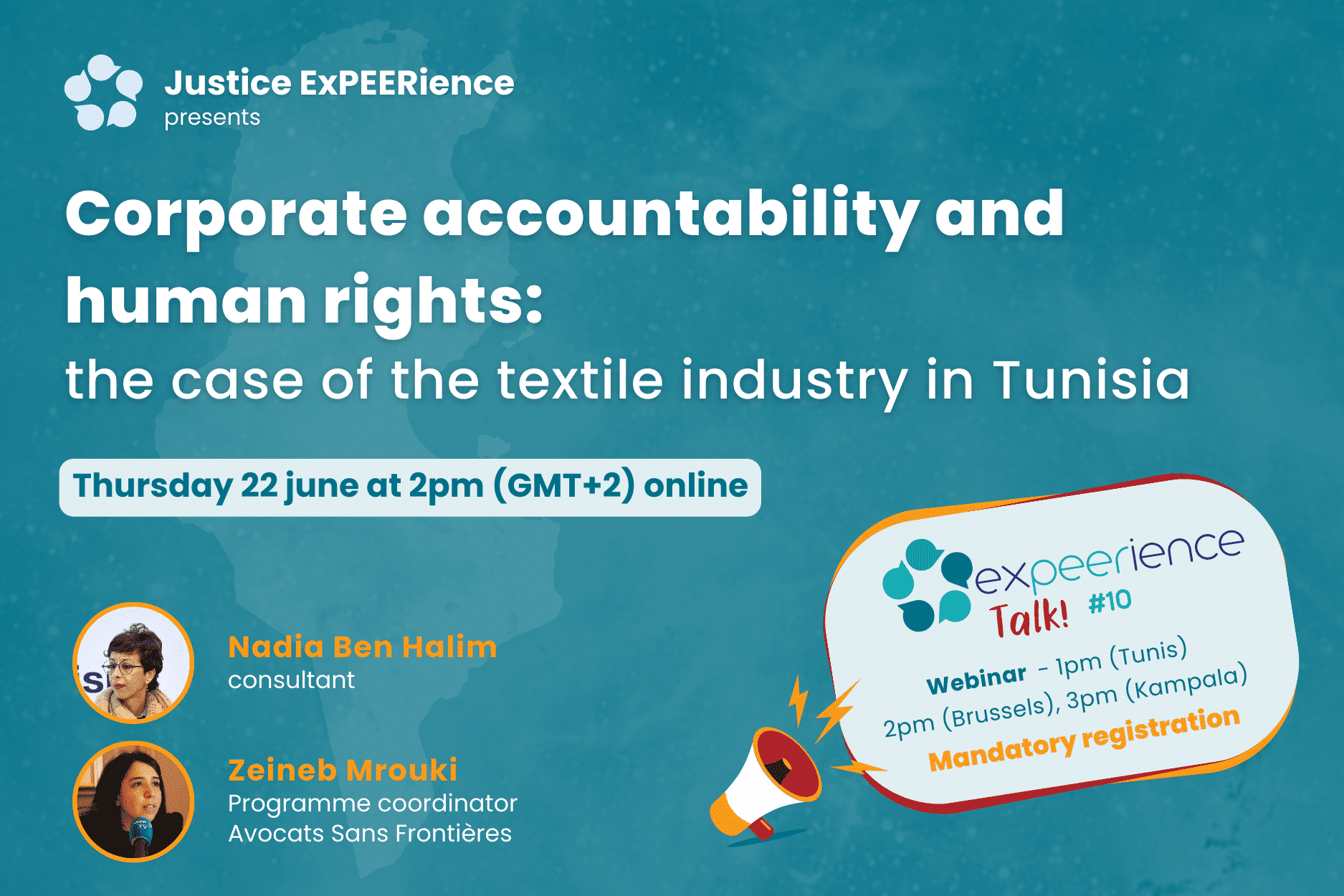
ExPEERience Talk #10 – Corporate accountability and human rights: the case of the textile industry in Tunisia
At the 10th ExPEERience Talk, Nadia Ben Halim (consultant) and Zeineb Mrouki (Programme coordinator at ASF Tunisie) will present a study on corporate responsibility with regard to human rights in the textile sector in the governorate of Monastir in Tunisia.
-
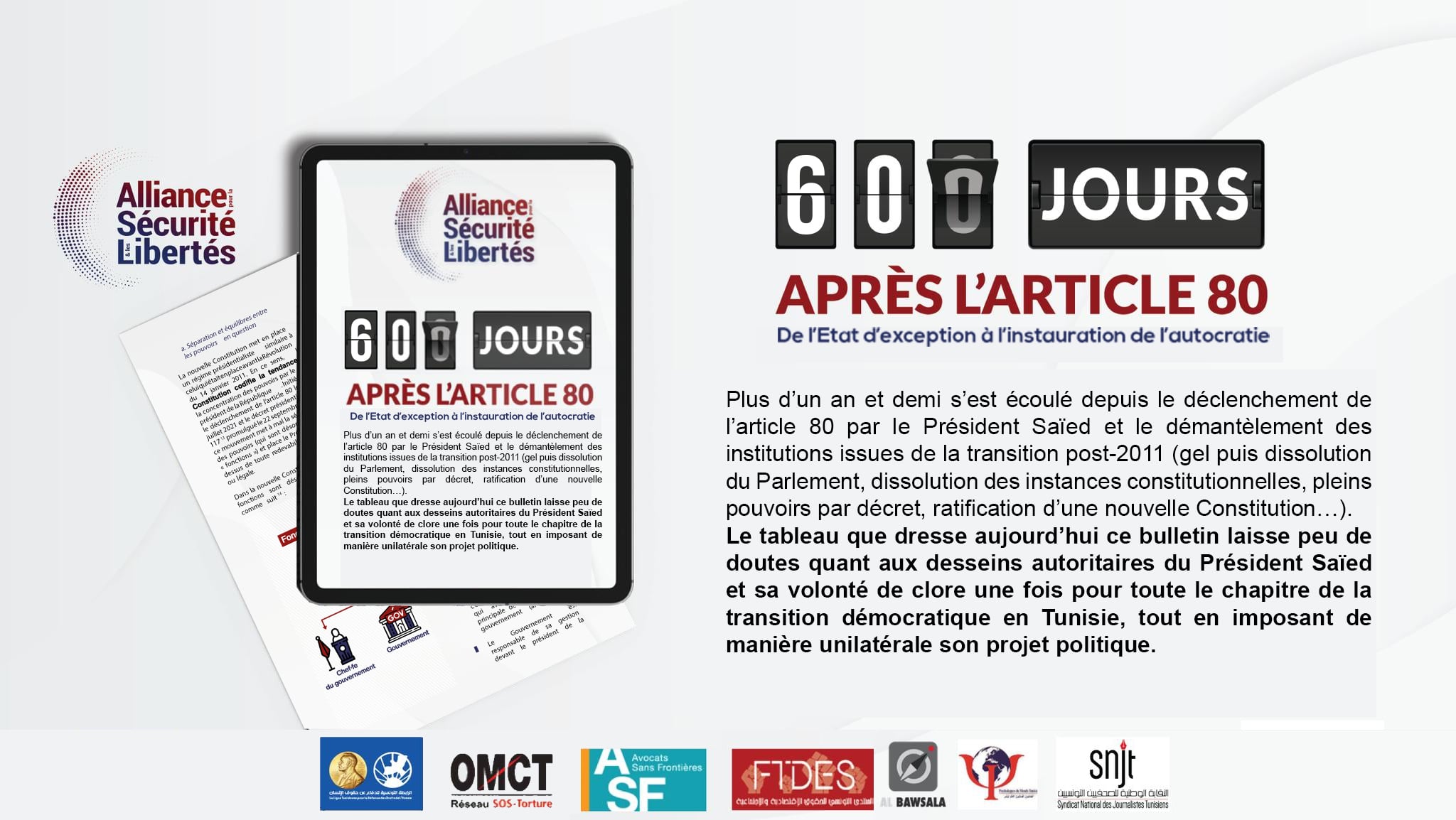
600 days after Article 80 : From the state of exception to the establishment of autocracy
The Alliance for Security and Liberties (ASL), of which ASF is a member, has published its fifth report on the rule of law and the state of freedoms in Tunisia. Begun in the aftermath of President Saïed’s coup de force on 25 July 2021, ASL’s quantitative and qualitative monitoring and analysis of the events, decisions…
-
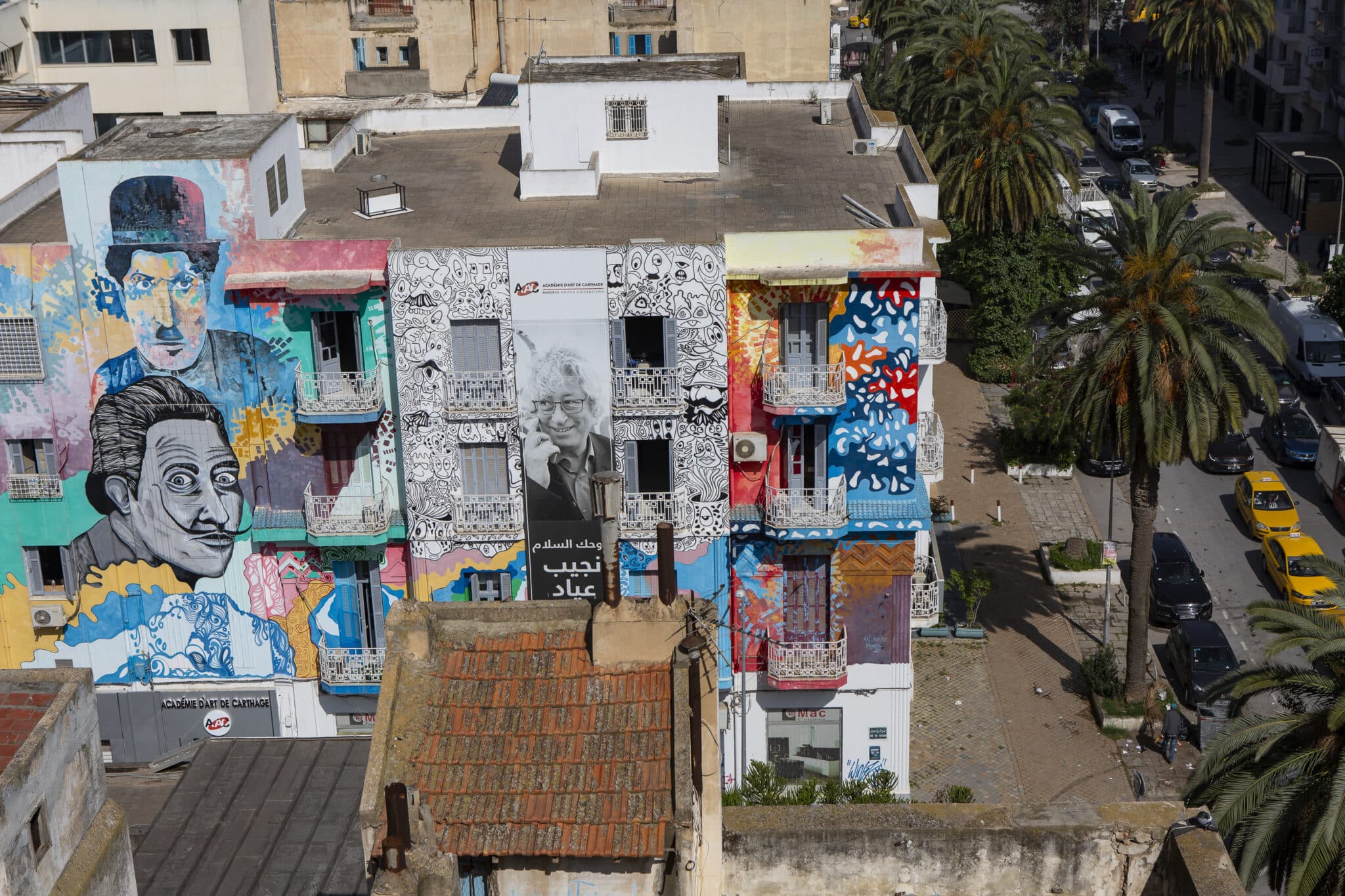
Tunisia: From the state of exception to a populist and authoritarian turn
Tunisia was considered the democratic exception in the region after the Arab revolutions of 2011 until the activation of article 80 by President Saied on 25 July 2021. That day, the country entered a state of exception (suspension of parliament, dismissal of the head of government and the President’s takeover of the executive and legislative…
-

ASF joins the “Poverty is not a crime” campaign
ASF joins the Open Society Foundation, APCOF, PALU, and ACJR in a campaign to promote the decriminalisation and declassification of minor offences. Particularly affecting people in vulnerable situations, these laws and their application are both arbitrary and discriminatory. “Vagrancy”, “disorderly behaviour” or “idleness” remain valid grounds for arresting and imprisoning individuals, contributing to the endemic…
-
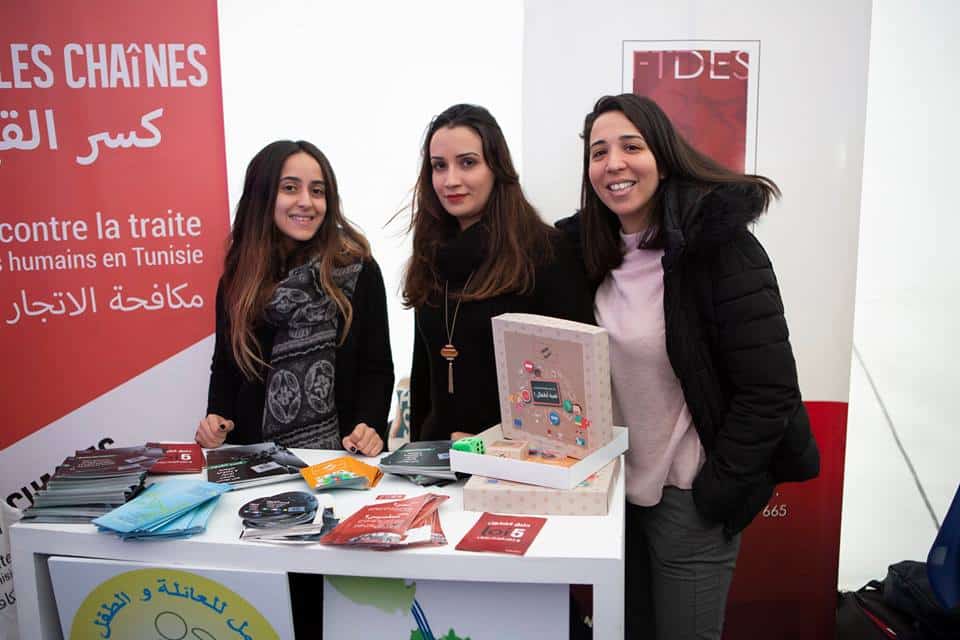
Combatting human trafficking: coordination is essential
For the victims of human trafficking, Tunisia could be their country of origin or their destination country, or they could be in transit. Since 2016, Tunisia has had a strong legal framework for combatting the phenomenon, but how can effective collaboration between the actors involved be ensured? ASF and the national anti-trafficking body organised an…
-

Human beings, not slaves: breaking the taboo around human trafficking in Tunisia
For several months, from the Kef to Sfax, hundreds of people have been mobilising to free Manel, Kayta, Morjena, and Hamma. These four mannequins symbolise the victims of human trafficking, a widespread though little-known phenomenon in Tunisia. ASF and its partners have decided to confront this taboo, in order to increase awareness and change behaviour.
